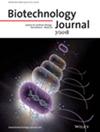Intracellular Antibody Levels Predict Secretion Efficiency in HEK293T Cells Expressing a Chimeric Anti-CD99 Antibody from a Single-Expression Plasmid
Abstract
Recombinant antibody production in mammalian cells is essential for therapeutic, diagnostic, and research applications. Single-expression plasmid systems that co-express both heavy and light chains under balanced promoters offer advantages in improving expression consistency. However, the relationship between intracellular antibody expression levels and secretion efficiency following clonal selection remains unclear. In this study, a single-expression plasmid encoding a chimeric anti-CD99 antibody (ChAbMT99/1) was constructed and used to establish stably expressing HEK293T mini-pool populations through zeocin selection. Intracellular ChAbMT99/1 expression levels in five selected mini-pools were assessed using intracellular immunofluorescence staining and flow cytometry. Antibody secretion into the culture supernatants was quantified by indirect enzyme-linked immunosorbent assay (ELISA) and further validated using indirect immunofluorescence assay and flow cytometry with native CD99-expressing cells. The results revealed a strong positive correlation between intracellular antibody expression and secretion levels. Mini-pools with higher intracellular fluorescence intensities produced greater antibody yields, indicating that intracellular antibody expression levels, within the context of single-plasmid expression systems, can reliably predict secretion efficiency. This finding facilitates the efficient selection of high-producing mini-pools for large-scale recombinant antibody production.


 求助内容:
求助内容: 应助结果提醒方式:
应助结果提醒方式:


